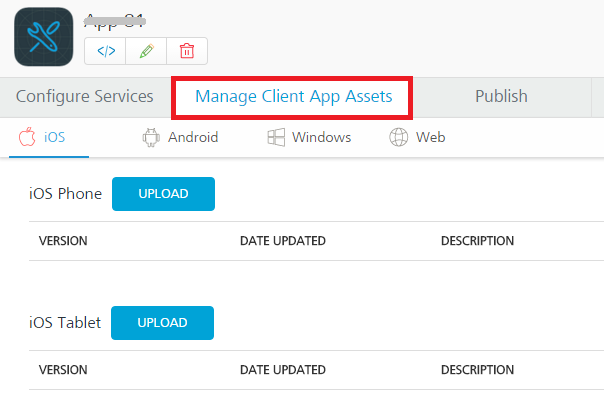Manage Client App Assets
With Manage Client App Assets ( for example, Quantum Management as a Service) functionality in Quantum Fabric, Quantum Fabric Users can now manage their client binaries through Quantum Fabric Console such as creating mobile applications, publishing the apps to <One Digit>.<Upto 2 Digits>.<Upto 3 Digits>. The dots and the digits after it in the version number are optional.
For example: The supported version formats for binaries are allowed for uploading such as 1, 1.0, 1.00.00, 1.0.00, and 1.23.456.
- In Quantum Fabric Console, to publish native client binaries to a Quantum Management Environment, first upload the required native client binaries for platforms under the Manage Client App Assets tab and publish these binaries to Management environment through Publish > Native Client tab.
- If you upload web client binaries (
.war) for Web under the Manage Client App Assets tab, these web binaries will only be published to the server.
NOTE: The database global variable MAX_ALLOWED_PACKETS size should be set to approximately twice the size of the binaries that you want to upload to Quantum Fabric Console.
Refer to FAQs > How I can increase the size limit of the Client binaries that I upload to MobileFaric Console.
NOTE: You can upload maximum up to 10 Web Client binaries for an app.
Menu path for Managing Client App Assets service designer:
After you create an application, in the app configuration page, click the Manage Client App Assets tab to display the tabs for iOS, Android, Windows, and Web.

